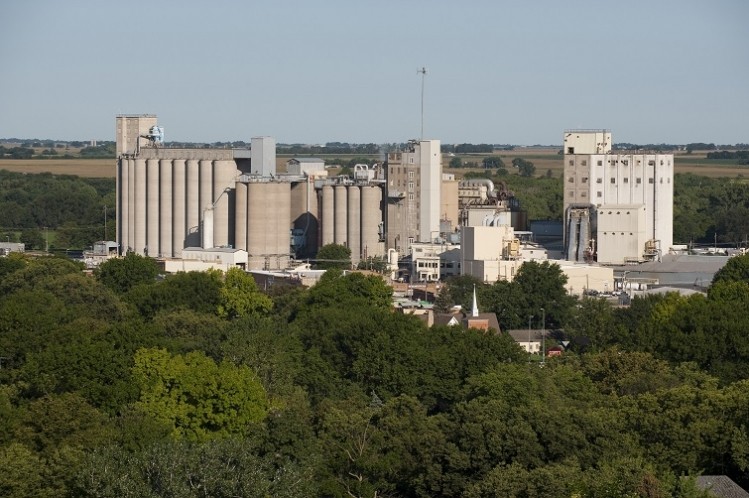Bunge expands feed, food line with certified transitional grains

The North American operating arm of Bunge Limited announced earlier this month that it would start providing corn products that are Certified Transitional, the company said. Initial corn feed and food ingredients will be generated in a dry milling process.
Offering the new corn product line is part of the company’s effort to support US farmers and the expansion of domestic organic corn production, said Gregg Christensen, vice president of sales with Bunge Milling.
“There’s a considerable amount of organic corn that is imported into the US that is consumed by the US consumer, and finding a way to have the American farmer grow and deliver what the US consumer wants is really the storyline of this program,” he told FeedNavigator. “It brings a level of a more reliable supply chain being grown here in the US.”
Currently, imported organic feed and food grains may go through several locations before they get to the US, and while the process is not unreliable, there is interest in supporting additional domestic production, to build an organic supply chain in the US, he said.
Organic corn-based foods and meat is valued at around $2bn in terms of the US retail market. The segment has seen over 10% annual growth for the past three years, as per data from Nielsen.
In the US, there is typically a three-year transition period for producers growing conventional feed crops, like corn, to transition to organic production, and it can be cost prohibitive, he said. Providing products that are certified in transition is intended to help producers financially while they navigate that process.
“It helps incentivize them and protect them during that transition time,” said Christensen. “There appears to be a continued growth in the organic market – getting more organic corn will help support what the US consumer wants.”
Bunge’s certified transitional corn is being certified by the USDA-accredited organic certifier Quality Assurance International, the company said. The new line of feed and food ingredients will be an addition to the company’s certified organic and Non-GMO Project Verified products.
Certified transitional farming
In the US, organics in training or, the official title, certified transitional farming is a way to support farmers during their three-year journey to become US Department of Agriculture (USDA) certified organic producers.
During the conversion process, Quality Assurance International certifies crops in transition to ensure they are grown using sustainable processes and that the farms avoid genetically modified seeds as well as prohibited conventional synthetic pesticides.
The Organic Trade Association (OTA) in the US says enabling a supply-chain premium for transitional crops can incentivize producers to move towards organic and can reduce the financial burden that a three-year transition period poses.
In January last year, the Organic Trade Association (OTA) announced a new partnership with the the USDA to help guide farmers transitioning into certified organic agricultural production.
Transition, organic program support
Initial production for the new certified transitional products is set to start at the company’s dry corn facility in Crete, Nebraska, said Christensen. However, depending on the market response, there is a possibility that product production could expand to an additional facility in Texas.
“That would be a logical choice if there would be a lot of interest from our growers to build our supplies,” he added.
Initial milled feed and food ingredients that will be generated include several types of dry milled corn products, he said. “We’re pretty open – we have the dry corn milled products, that’s milled grain corn for many applications from grits to meals to flours,” he added.
Products made will include ingredients that could be used in feed, he said.
There is not an initial target amount to be generated, said Christensen. “We want to engage in the conversation with how this [expands],” he added.
Currently the company is establishing contract growers to provide in-transition grain, he said.
“Organic demand is good,” he said. “It continues to become more-and-more of a trend and less of niche, and we continue to see that the key is the more we can engage directly with the farmers. If they want to grow it, this is the program that hopefully will allow them to make the transition.
“The demand is there from the organic standpoint,” he said. “We certainly would love to support the US farmer in that transition.”










